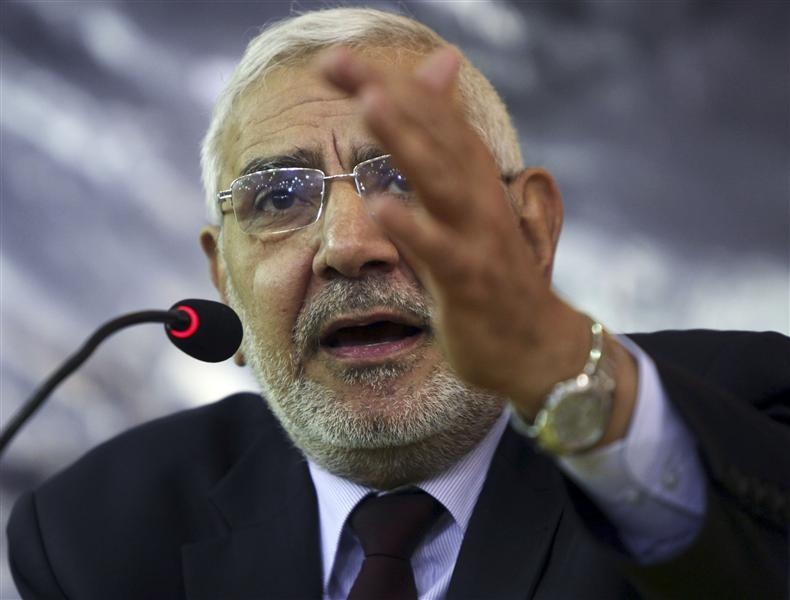Latest NEWS
- Aswat Masriya, the last word
- Roundup of Egypt's press headlines on March 15, 2017
- Roundup of Egypt's press headlines on March 14, 2017
- Former Egyptian President Hosni Mubarak to be released: lawyer
- Roundup of Egypt's press headlines on March 13, 2017
- Egypt's capital set to grow by half a million in 2017
- Egypt's wheat reserves to double with start of harvest -supply min
- Roundup of Egypt's press headlines on March 12, 2017
Abul-Fotouh: Foreign funds flood Egypt to bolster presidential campaigns

Egyptian presidential candidate Abdel Moneim Abu El Fatouh delivers a speech to people northeast of Cairo - Amr Dalsh/REUTERS
Egyptian presidential hopeful Abdel Moneim Abul-Fotouh claimed on Tuesday that LE50 million had recently been funnelled into the country from overseas to support various presidential candidates.
Speaking at a campaign rally at a medical school in the Upper Egyptian Assiut governorate, Abul-Fotouh asserted that illicit funds had been used to bribe citizens to sign nomination petitions for would-be presidential candidates. Egyptian electoral law requires that candidates obtain 30,000 voters' signatures before they can register their candidacies.
Abul-Fotouh said that several countries had tried to inject funds into Egypt with the aim of influencing the outcome of Egypt's first post-Mubarak presidential poll. He added that, while ballot boxes had simply been stuffed during the Mubark era, upcoming elections might be rigged via bribery and the use of illegitimate funding.
He went on to blame Egypt's ruling military council for the recent influx of funds, demanding that the council prevent any more funds from entering the country.
Abul-Fotouh is a former leading member of the Muslim Brotherhood but was expelled from the group when he disobeyed a Brotherhood decision not to field a presidential candidate. He is running in the election, slated for 23 and 24 March, as an independent.
Foreign funding has become a red-button issue in Egypt in recent months. The Muslim Brotherhood, for one, has been accused of receiving millions of dollars in foreign funding from Qatar – allegations that the group has vehemently denied.
Additionally, several NGOs working in Egypt were recently accused of receiving illegal foreign funding, with 43 NGO workers – including 14 Egyptians and 29 foreigners – being summoned by judicial authorities to face charges for illegal activity.
The upcoming presidential race will feature candidates from across the political spectrum, including Islamists, liberals and sympathisers with the former regime. Each of these groups is said to have supporters abroad.










